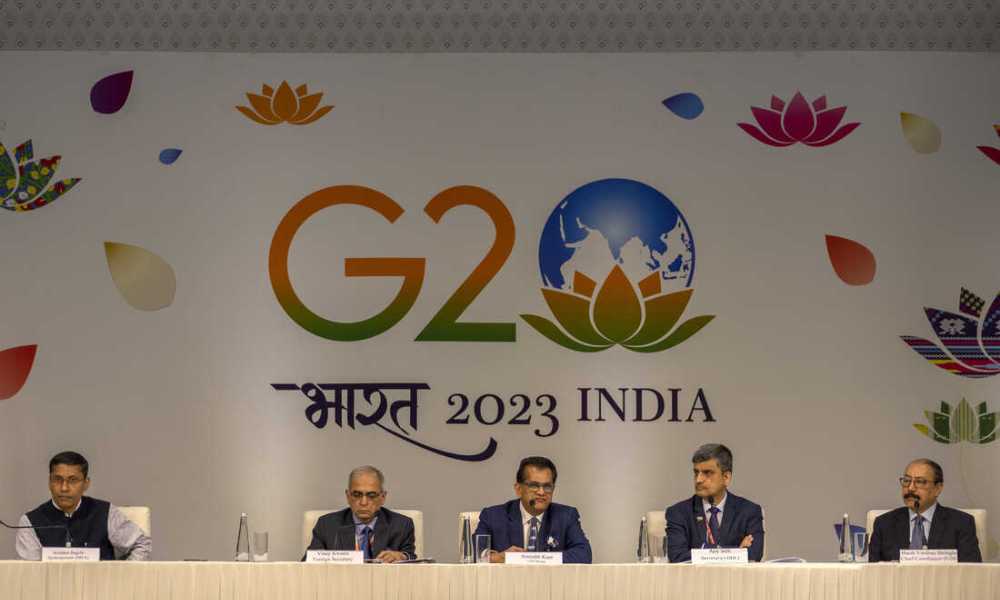
In recent years, there has been a significant development in the Group of Twenty (G20) – the inclusion of the African Union (AU) as a member.
| Are you a Tax Lawyer in USA? 👉Transform Your Brand: Click for Metamorphosis👈 |
This change represents a milestone in global cooperation and reflects the increasing recognition of Africa's role in the global economy.
In this blog, we will explore why the African Union was included as a member of the G20 and what this means for both Africa and the G20.
The African Union was officially included as a member of the G20 during the 2010 G20 Seoul Summit. This decision was based on several factors that highlighted the importance of African involvement in global economic discussions:
1. Economic Significance: Africa's economic importance has been on the rise. The continent is home to numerous emerging economies with substantial growth potential. By including the AU, the G20 acknowledges Africa's growing role in the global economy.
2. Global Challenges: Many global challenges, such as climate change, poverty, and health crises, have a significant impact on African nations. Including the AU allows for a more comprehensive approach to addressing these issues by involving those most affected.
3. Representation: The G20 aims to be more representative of the world's diverse economies. Africa is home to over 50 countries, each with its unique economic and developmental challenges. The AU's inclusion ensures a more diverse and inclusive representation in global economic discussions.
4. Economic Cooperation: The G20 seeks to foster economic cooperation and stability. By including the African Union, the G20 can work more closely with African nations to promote trade, investment, and development in the region.
What This Inclusion Means for Africa
The African Union's membership in the G20 holds several implications for the continent:
1. Economic Opportunities: African countries gain access to a platform where they can engage with major economies. This opens up opportunities for trade, investment, and economic partnerships that can benefit African nations' growth and development.
2. Voice in Global Economic Policies: Africa can now actively participate in shaping global economic policies. The AU can advocate for policies that align with the continent's interests, such as sustainable development, poverty alleviation, and equitable trade practices.
3. Capacity Building: African nations can benefit from capacity-building programs and initiatives initiated by the G20. This support can help strengthen institutions, improve governance, and build resilience to economic challenges.
4. Coordinated Responses: In times of global crises, the AU's inclusion allows for coordinated responses. African nations can work closely with the G20 to address issues like health emergencies, financial crises, and climate change.
5. Increased Investment: The AU's involvement in the G20 can boost investor confidence in Africa. The continent becomes a more attractive destination for foreign investment, potentially driving economic growth and job creation.
The G20's decision to include the African Union also carries significance for the forum itself:
1. Enhanced Global Reach: With the AU's inclusion, the G20's global reach is extended. This broader representation allows for a more comprehensive and inclusive approach to addressing global economic challenges.
2. Diverse Perspectives: The African Union brings unique perspectives and experiences to the G20 discussions. This diversity enriches the dialogue and decision-making process, leading to more robust and well-rounded outcomes.
3. Comprehensive Solutions: By involving African nations, the G20 can develop more comprehensive and effective solutions to global challenges. African expertise and input are invaluable in addressing issues like poverty, climate change, and infrastructure development.
The inclusion of the African Union as a member of the G20 represents a significant step toward a more inclusive and representative global forum.
It acknowledges Africa's growing economic significance, its unique challenges, and its potential to contribute to global economic discussions.
This decision is a testament to the G20's commitment to fostering cooperation and addressing global challenges in a more comprehensive and collaborative manner.
As Africa continues to play a vital role in the global economy, its participation in the G20 is expected to bring mutual benefits for both the continent and the forum.